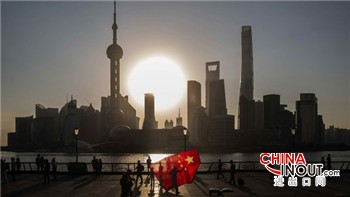中國的經(jīng)濟(jì)數(shù)據(jù)和股市都未能給仍對今夏股災(zāi)心有余悸的投資者帶來些許安慰,。但探訪一下中國本土私募股權(quán)公司中信資本(Citic Capital)投資的企業(yè),,就會發(fā)現(xiàn)市場可能悲觀過頭了。
中信資本認(rèn)為,,中國的確正在轉(zhuǎn)向理想中的更以服務(wù)為導(dǎo)向,、消費(fèi)驅(qū)動的經(jīng)濟(jì),這種觀念已成為如今該公司主要的投資主題,。不過這種轉(zhuǎn)變并沒有過多地表現(xiàn)在經(jīng)濟(jì)數(shù)據(jù)上——經(jīng)濟(jì)數(shù)據(jù)仍專注于工業(yè)生產(chǎn),、工業(yè)生產(chǎn)者出廠價(jià)格通縮等指標(biāo)。此外,,由于中國股市成立之初的主要目的就是為了給(經(jīng)常無法盈利的)國有企業(yè)籌集資金,,股市本身無法反映整體經(jīng)濟(jì)狀況。
例如,,可以看一下2014年被中信資本收購的金可兒床墊(King Koil Mattress)中國公司的情況,。一家床墊企業(yè)可以很好地反映出消費(fèi)狀況,雖然這一點(diǎn)并非一望即知,。位于上海郊區(qū)的金可兒床墊展廳所展示的床墊售價(jià)最高達(dá)97萬元人民幣(合16萬美元),,其最暢銷的款型售價(jià)為1.6萬元人民幣,而最低端的款型售價(jià)1.08萬元人民幣,。
同時(shí),過去3年,,金可兒的收入每年增長40%,,同期利潤年均復(fù)合增長率達(dá)110%。其中一個(gè)原因在于原材料成本并未上漲,。不過,,據(jù)展廳的工作人員透露,勞動力成本平均上漲了10%至15%——這是好事,,不是壞事,。
如果經(jīng)濟(jì)轉(zhuǎn)型要保持下去,中國需要創(chuàng)造低端制造業(yè)以外的就業(yè)機(jī)會,,同時(shí)需要工資和收入上漲以支撐消費(fèi),。而這種情況在中國內(nèi)地正在發(fā)生(與很多工資基本停滯不前的發(fā)展中國家和發(fā)達(dá)國家形成對比)。去年,中國新增了1300萬個(gè)工作崗位,,今年上半年新增就業(yè)崗位超過700萬,,而在大多數(shù)省份,工資平均在以13%的速度上漲,。
“就業(yè)是整體低迷中的一抹亮色,,”摩根大通(JPMorgan)駐香港首席中國經(jīng)濟(jì)學(xué)家朱海斌表示,“制造業(yè)就業(yè)不足,,收入增長放緩,,但服務(wù)業(yè)意味著更多收入和消費(fèi)。”
與此同時(shí),,金可兒中國以及整個(gè)中國內(nèi)地的生產(chǎn)率都在持續(xù)提升,。金可兒在中國的工廠生產(chǎn)的床墊比美國工廠生產(chǎn)的質(zhì)量更好,價(jià)格還更低,。
同時(shí),,對北京郊區(qū)一所東方劍橋雙語幼兒園(OC Early Education)的實(shí)地探訪講述了類似的故事:市場日益擴(kuò)大,學(xué)費(fèi)不斷上漲,。東方劍橋雙語幼兒園對三歲起的學(xué)生進(jìn)行英漢雙語教學(xué),,而學(xué)生們越來越富裕的家長也有足夠的錢負(fù)擔(dān)隨后幾年翻倍的學(xué)費(fèi)。
此外,,人口結(jié)構(gòu)結(jié)合政策變化也創(chuàng)造了更多有利條件,。中國將全面放開二孩,這將為學(xué)校創(chuàng)造更多需求,,尤其是所謂“虎爸虎媽”想讓孩子進(jìn)的那些好學(xué)校(好學(xué)??梢詾楹⒆游磥淼娜松鷰韮?yōu)勢)。
這兩家公司所處的領(lǐng)域都高度零散化,,這意味著它們可以通過并購擴(kuò)大規(guī)模,,中信資本也很容易在某一時(shí)刻通過股權(quán)轉(zhuǎn)讓(trade sale)退出。
這些絲毫沒有體現(xiàn)在所謂的李克強(qiáng)指數(shù)(Li Keqiang index)中,,該指數(shù)衡量銀行信貸,、用電量及鐵路貨運(yùn)量增幅。大多數(shù)服務(wù)企業(yè)缺少銀行要求作為貸款抵押的硬資產(chǎn),,而且它們的能源密集度也不高,。(考慮到物流以及所謂最后一英里送貨上門的挑戰(zhàn),金可兒用卡車將床墊從工廠運(yùn)送給客戶,。)
事實(shí)上,,中信資本投資的企業(yè)主要由服務(wù)企業(yè)構(gòu)成,這些企業(yè)10年前基本上都不存在,,它們涉及的領(lǐng)域包括教育,、媒體、金融、物流——還有阿里巴巴(Alibaba),,中信資本希望從其身上獲得5倍的投資回報(bào),。雖然中信資本投資的許多企業(yè)無法獲得銀行融資,但具有諷刺意味的是,,中信資本卻可以毫不費(fèi)力地獲得銀行貸款,。
當(dāng)然,有朝一日,,私募股權(quán)公司將能夠讓服務(wù)企業(yè)上市,,屆時(shí)股市對經(jīng)濟(jì)運(yùn)行情況的反映將不那么扭曲,并將為投資者提供更多有利可圖的機(jī)會,。如果這是監(jiān)管機(jī)構(gòu)從今夏的股災(zāi)中汲取的教訓(xùn),,那雙方的境況都將變好。(中國進(jìn)出口網(wǎng))

Both economic data and the stock market in China offer little cheer to investors still spooked by the events of the summer. But a visit to the portfolio companies of Citic Capital, a local private equity firm, suggests the gloom is overdone.
Citic Capital believes China is indeed making the desired shift to a more service-oriented, consumption-driven economy, a view that has become its principal investment theme today. That shift, though, does not appear in much of the data, which still focus on such measures as industrial production and deflation in producer prices. Moreover, since the whole point of the stock market from the beginning was to raise capital for (often profit-free) state-owned enterprises, the market itself is hardly a reflection of the state of the overall economy.
Consider, for example, the circumstances of the Chinese unit of King Koil Mattress, which Citic Capital bought in 2014. While it is not immediately obvious, a mattress company is a good indicator of consumption. A King Koil showroom on the outskirts of Shanghai displays mattresses that sell for up to Rmb970,000 ($160,000), with its best-selling models priced at Rmb16,000 and its lowest end mattress Rmb10,800.
Meanwhile, King Koil’s revenues have grown 40 per cent per year for the past three years, with profits up 110 per cent for the period on a compound annual basis. One reason for this is the fact that raw material costs are not rising. Labour costs, though, are up between 10 and 15 per cent on average, according to staff in the showroom — but that is a good thing, not a bad thing.
If the shift is to take hold, China needs to create jobs beyond low end manufacturing, and wages and incomes need to rise to support consumption. And that is happening on the mainland (in contrast to much of both the developing and developed world wher wages remain essentially flat). China created 13m jobs last year and more than 7m in the first half of this year, while in most provinces wages have been rising 13 per cent on average.
“Jobs are the silver lining,” says Haibin Zhu, chief China economist for JPMorgan in Hong Kong. “There is underemployment in manufacturing and slower income growth, but services mean more income and more consumption.”
At the same time, productivity continues to improve both at King Koil and generally across the mainland. The factories in China produce better quality mattresses than those in the US — still at a lower price.
Meanwhile, a visit to one of OC Early Education’s kindergartens on the outskirts of Beijing tells a similar story, of rising tuition charges in a growing market. OC Education teaches English as well as Chinese from the time its students are three, while their increasingly affluent parents have enough money to afford a doubling of tuition fees in later years.
Moreover, a combination of demographic and regulatory changes provides further tailwinds. China is about to let virtually all urban residents have more than one child, which will create far more demand for schools, especially those that will give the children of so-called “tiger” parents an advantage later in life.
Both companies are in fields that are highly fragmented, suggesting they can grow by acquisition, and that Citic can easily find an exit through a trade sale at some point.
The so-called Li Keqiang index, which measures the increase in bank credit, electricity usage and railway freight transport, does not capture any of this. Most service companies lack the hard assets banks require as collateral for loans, and they are not energy intensive. (Given the logistics for King Koil, and the challenge of so-called last mile delivery, trucks transport mattresses to customers from the factory.)
Indeed, Citic Capital’s portfolio is dominated by service companies that barely existed 10 years ago, in sectors including education, media, finance and logistics — and Alibaba (on which Citic expects to make five times its money). And while many of its portfolio companies cannot get bank financing, ironically Citic Capital itself has no problem doing so.
At some point, of course, private equity firms will be able to float these service companies, and the stock market will provide a less distorted view of what is happening in the economy and offer investors more interesting opportunities. If that is the lesson regulators draw from the debacle of the summer sell-off, both sides will be better off.











